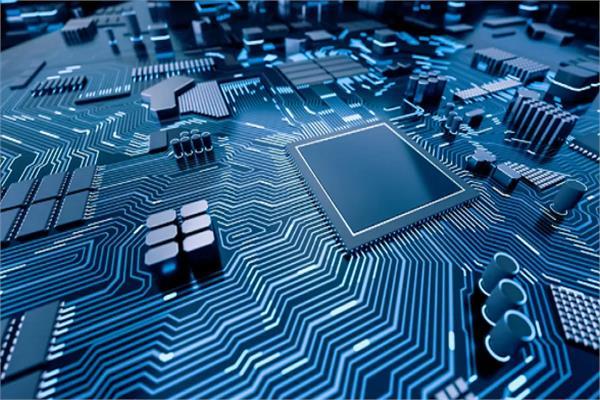After years of endeavors led by China to achieve its independence in the semiconductor industry, many Chinese companies began in 2021 to take the necessary steps for this, and this included giant technical companies, such as: Baidu and Alibaba, and phone manufacturers, Such as: Huawei, Xiaomi, and Oppo, and home appliance manufacturers, such as: Gree, Midea, TCL, and Haier.
Although some of the previous companies already have experience in the electronic chip industry, some of them are still new in this highly competitive market. Can they really achieve their ambitions in the electronic chip industry of their own, especially after the US ban, which made it clear that stopping supply chains It will be disastrous for it and may lead to its exit from the market completely, as happened to Huawei?
According to the Financial Times website, quoting the Chinese data company (Qichacha), in 2020 more than 13,000 domestic processor manufacturers were registered in China, and there are many reasons Behind this frantic race for companies to enter this market is the Chinese government's encouragement of companies to innovate in this field to reduce dependence on importing electronic chips from foreign companies.
This is due to the fact that the Chinese government knows that in order to become a superpower in the field of technology, innovation in the field of semiconductors is a major factor hindering this endeavor, as reports have shown that China's self-sufficiency in the semiconductor industry is low, as it exports chips worth 100 billion dollars, but it imports more than 300 billion dollars, which is one-sixth of the total national imports.
Although China has proven that it can produce anything on a large scale, the production of processors, especially high-quality ones, is still significantly behind, and to change that, China established an investment fund worth $22 billion in 2014 and another in 2019 with a value of $29 billion. dollars, and yet it has been able to achieve little progress in this area so far.
As most Chinese companies in this field focus on design processes, while the actual manufacturing is still carried out by third-party factories run by giant companies, such as: Samsung and Taiwanese TSMC, however, according to many experts, even if large Chinese companies can While making progress in processor design, it is still far from achieving the national goal of complete independence through a combination of design and manufacturing.

We find that these moves from a business perspective make a lot of sense, as for some Chinese companies it is a practical way to remove risks associated with their supply chains, as the US sanctions prove That prevented Huawei from buying US companies' processors as a warning to these companies.
Even for businesses in areas that may not pose an immediate threat to the US government, the global shortage of processors that began this year is a reminder that international suppliers can quickly become unreliable.
Baidu is among the first large technology companies in China to enter the processor industry, starting to invest in this field in 2010. It released its first processor in 2018 that can be used in central cloud data centers or in consumer devices, and then launched another processor in 2019 to power smart speakers in cars and home appliances.
Alibaba, the most prominent competitor of Baidu, has also invested heavily in this field, as in 2018 it purchased a local processor manufacturing company, and since then it has launched two artificial intelligence processors. The company also has strategic investments in six other emerging companies in this field.
Prominent Chinese companies have also joined the race, such as: Tencent, which bought a cloud computing company in 2020, while ByteDance is still among the most Chinese companies whose plans are still unclear in this field, however, it has begun to announce in the recent period. About the need for employees with experience in the manufacture of processors.
As for the Chinese smartphone manufacturers, Huawei is considered the leader in this field, as it began its own research in the design of processors more than two decades ago, by establishing in 2004 the company (HiSilicon) to focus on the processor industry, which is A decision that was questioned by many and not followed by anyone.
However, over the years the company has released a variety of processors that can be used in smartphones or wearable devices, as it is now the only Chinese company seen as a serious competitor in the global processor industry.
As a result, other companies began to take similar steps, albeit belatedly, such as (Xiaomi), which began investing in this field in 2014 and launched its first processor three years later, but is still progressing slowly. (Oppo) its research and investments in this field in 2019.
Although there is great enthusiasm among Chinese investors to enter this market, driven by the Chinese government's desire not to depend on foreign companies to supply processors, many experts agree that The processor industry requires years of huge investment with a long wait, as it took more than ten years for the company (HiSilicon) owned by Huawei to obtain a small part in this market, however, it is still not yet able to compete with the dominant companies.
And then for the new Chinese companies entering the processor industry market, they have to invest a lot of money, time and effort to achieve success in this highly competitive market that is strongly dominated by large companies that count on the fingers of one hand.